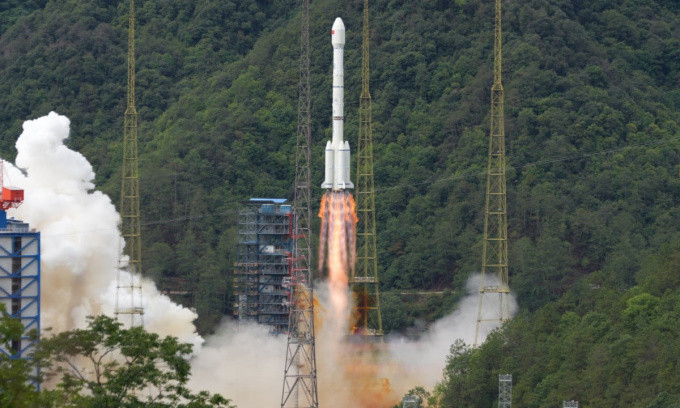The Smart SkyNet-1 01 satellite operates at an altitude of 20,000 km, equipped with advanced technology to provide high-speed Internet to global users.

The first satellite in China's ambitious Smart SkyNet broadband internet network - a rival to the US company SpaceX's Starlink - was launched into medium Earth orbit on May 9. The satellite, named Zhihui Tianwang-1 01 or Smart SkyNet-1 01, was launched from the Xichang Satellite Launch Center in southwest China on a Long March 3B rocket. Smart SkyNet-1 01 was developed by the China Aerospace Science and Technology Corporation (CASC) and several other institutes.
Elon Musk’s space company, SpaceX, has had rapid success in providing internet service from space, largely due to a lack of competition. Amazon’s Project Kuiper has launched just two prototype satellites so far. Another provider, OneWeb, is focused on building a satellite network first and plans to start offering service to customers in June.
CASC is a latecomer to the game. However, CASC plans to accelerate infrastructure development and achieve 500 Gbps Internet speeds as early as 2025.
Unlike Starlink, which operates in low Earth orbit, SkyNet-1 01 operates at an altitude of 20,000 km, in medium Earth orbit - a high orbit ranging from 2,000 km to 36,000 km. This is also the area where GPS satellites operate.
SkyNet-101 features high-speed microwave links, two-way laser links between satellites, and a digital processing and relay platform. CASC plans to test the satellite's core technologies such as laser communications in space and provide Internet access to users as far away as Antarctica and on ships in the Western Indian Ocean.
CASC said seven more satellites will join the initial Smart SkyNet constellation, with the potential to expand to 16 or 32. That number may seem small, given that OneWeb already has more than 600 satellites, while Starlink is aiming for 6,000.
Rather than operating in space alone, however, CASC's satellites will coordinate with other Chinese satellites already in orbit to quickly provide global coverage. Specifically, Smart SkyNet will coordinate with satellites from the GuoWang and G60 Starlink networks - operating in low Earth orbit and higher geostationary orbit - with an expected scale of about 12,000 satellites per network.
TH (according to VnExpress)